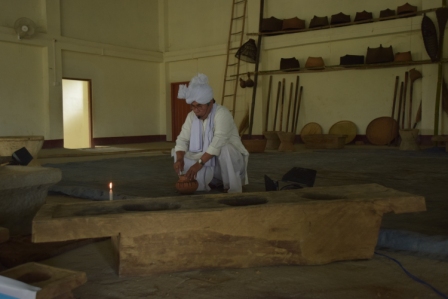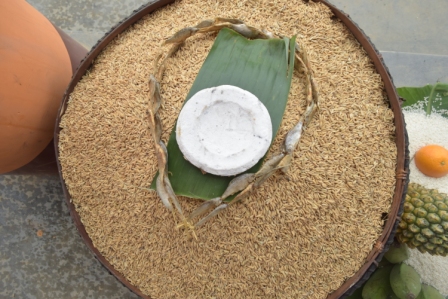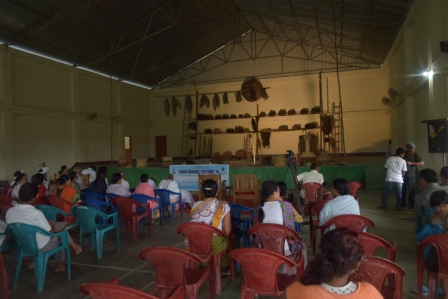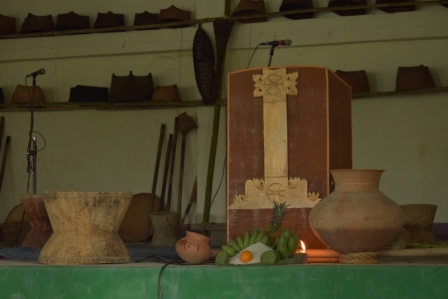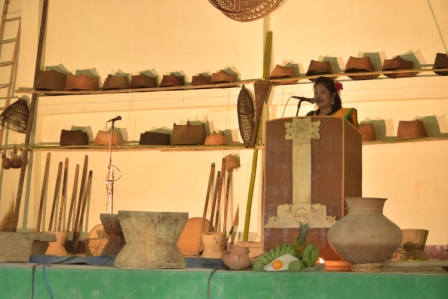SHUM-HONGBA festival of wooden mortar and pestle by ICH division and Peoples’ Museum Kakching Back
Folk songs have played a crucial role in reconstructing the early history of Manipur. During the early days of Manipuri civilization, folk songs were used to chronicle important events, and every agrarian community had ceremonies and rituals that boosted productive energies. Manipuri society has a rich collection of folk songs that have been tied to agricultural practices in the Manipur valley since ancient times. Folk songs are known for their lyrical, simple, and rhythmic nature. They usually represent the social heritage, environment, pleasures, sorrows, issues, and concerns of the people living in a particular area. Their main feature is a superb combination of wording along with the tune.
On June 21st and 22nd, 2016, the Kaching Museum in Manipur hosted a two-day celebration called Shun Hongba at the Sumang Likai Community Hall in Kakching. The festival celebrated Sheembal-Hongba, which is the consecration of the wooden pestle and mortar, and the art of converting the paddy rice seed. Sheembal-Hongba is of two types, lep shum and phei shum. Both types were usually made of wood from a particular tree called meesi, which gets harder as it dries. With the advent of mechanised rice mills in Manipur, the practice has largely disappeared.
Fortunately, there are still a few individuals in the rural areas and the hills of Manipur who show people how it’s done. This was a collective endeavour, mainly by women, associated with displaying the activity for people to cherish the past, record the authentic rituals and culture, and re-energize the concern for women’s health. A full audio-visual documentation of the event has been completed.
Rice is not just a staple food in Manipur, it also holds significance in their religious ceremonies. During various stages of rice production and storage, ritual offerings are made to please the goddess Phouoibi. The traditional practice of Phoussuba, which involves dehusking rice, has several health benefits. In the past, pregnant women were advised to carry out the dehusking process to avoid any complications during childbirth. By dehusking rice themselves instead of using mill-produced rice, people can protect themselves from harmful chemicals like arsenic and lead. It’s important to revive these ancient practices to preserve and conserve traditional customs from fading away





